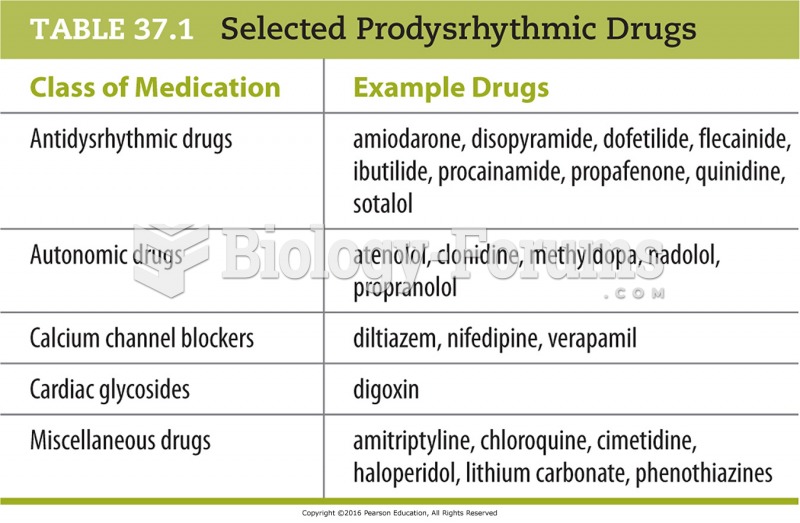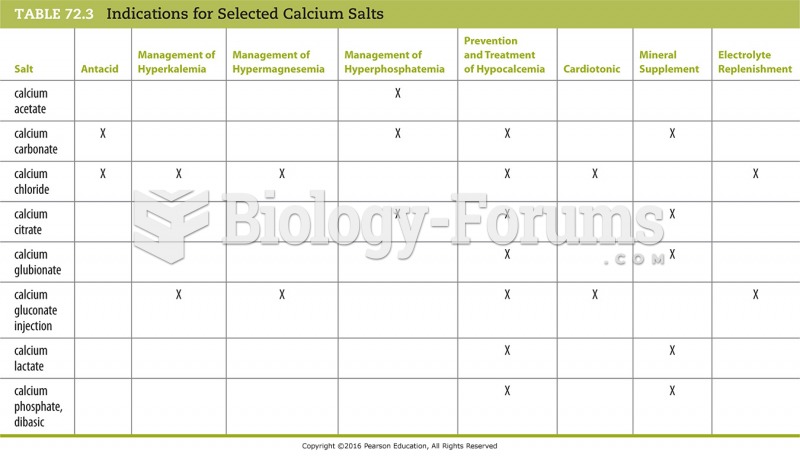Answer to Question 1
B
Answer to Question 2
Some medications can currently be delivered on an implanted chip. This is the focus of a great deal of research. The drug is embedded in a chip, which is surgically implanted in the patient. The drug may be released by diffusion. It may be embedded in a biodegradable material that releases as it degrades. One drug, used to treat brain cancer, is a biodegradable implant placed directly on the site from which the tumor was removed. The newest chip to be announced (October 2003) can deliver several medications. It can also deliver specific doses at predetermined times. The chip is in the early stages of development. Medications are embedded in polymers (plastics) that have already been approved by the Food and Drug Administration for other uses in humans. Thus far, the chips have been tested only on animals. Some of its potential uses include delivering an entire course of medication over a period of months, delivering a series of vaccines at the correct time, and delivering medication that needs to be taken continuously, including painkillers and medications for chronic conditions. This pharmacy on a chip is completely biodegradable. One advantage of using chips to deliver medication is that because they bypass the stomach, they avoid stomach upsets.
In 2006, research continued on a chip that uses wireless signaling and a system of reservoirs that allow precise, efficient delivery of solids, liquids, or gels. It is the size of a stamp, includes 100 wells that can be filled with drugs, and will deliver substances that are very strong but have limited stability. Wireless technology can be used to deliver information so that the chip will deliver the correct dose at the correct time. The devices also contain biosensors to deliver information, and the biosensors can be linked to the drug delivery system. The system will not be in human safety trials for a number of years. As of 2011, researchers at Rensselaer Polytechnic Institute were developing electromagnetic liquid pistons, which in the future might deliver drugs on an implanted chip that could release timed doses of medication.







